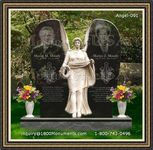|
Understanding The Principles Of General Funeral Service Planning
Losing someone close take an emotional toll. It falls on family to make arrangements for a funeral service unless the deceased prepared them ahead of time. When performing this task, it helps if one is able to look past the grief and view it as a celebration of life for the individual who has passed on.
A skilled funerary specialist will be most helpful at this time. They are event coordinators who know how to help the bereaved make the necessary decisions. These may include penning the obituary, covering the legal aspects, choosing burial specifics and all the small, but important details of the interment process.
It is also necessary to decide who will be conducting the proceedings. Traditionally, it would be the deceased's minister or spiritual leader. If they were not associated with any particular group of that type, the position may be given to another cleric or perhaps to someone who was close to the individual and knew them quite well.
Next is deciding where the proceedings will be held. The coordinator can help with finding a location, setting up floral deliveries, casket preparation and display, providing audio and video equipment and handling reception details. They can also suggest appropriate music, poems or verses and design a memorial handout or event program.
Others may request the opportunity to speak a few words. Giving the eulogy can be one of the more emotional tasks. This heartfelt summary of a life should list their accomplishments and special attributes but should remain only 5-10 minutes long.
There are many details in planning a funeral service. The family may wish to provide a guest book for mourners to sign and leave a message if desired, a special table for the display of photographs and memorabilia, as well as a handout which not only guides the proceedings but acts as a memento of the occasion. Because this is a difficult time for all involved, the event is usually designed to last no more than an hour.
|
|



























